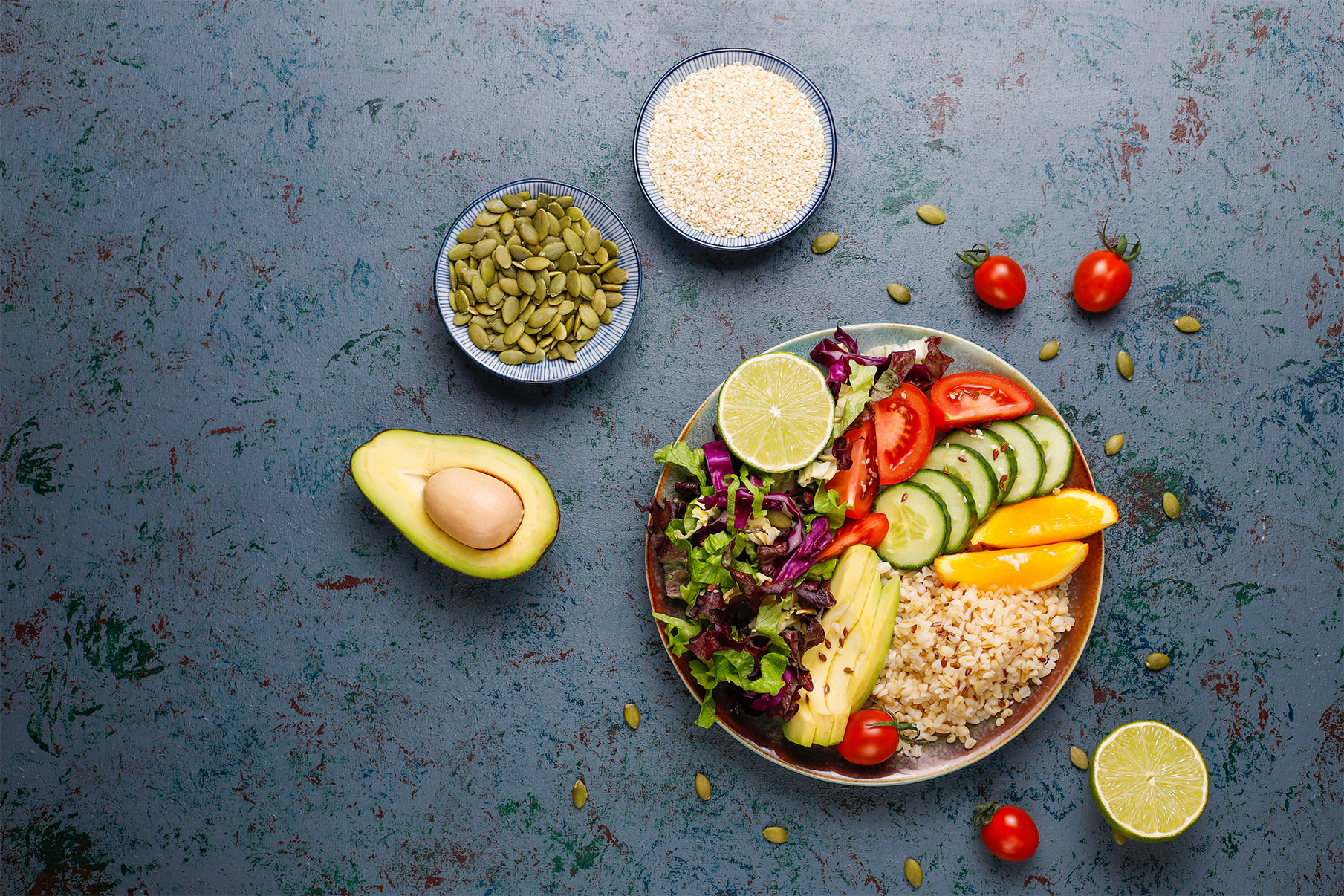JUST AS IMPORTANT AS WHAT YOU EAT
IS HOW YOU EAT IT, AND BEVERAGES MUST BE REGULATED AS WELL AS SOLID FOODS.
Why should I follow these recommendations?
Help to prevent nutritional deficiencies that may result from a decreased intake of food, maldigestion and/or malabsorption of nutrients.
Help to achieve the maximum amount of weight loss.
Help to prevent nausea, vomiting, dehydration, hair-loss, dumping syndrome and other potential side effects.

EATING PRACTICES
IT IS A GOOD IDEA TO START MAKING CHANGES BEFORE SURGERY TO HELP YOU PREPARE FOR YOUR NEW LIFESTYLE AFTER SURGERY.
Chew your food thoroughly. This becomes very important after surgery. With the reduction in the size of your stomach and other changes in your anatomy you must be able to chew food to a liquid consistency before swallowing. Not chewing your food enough could result in pain, nausea and vomiting.
Practice eating slowly and stop eating when you feel full or comfortably satisfied. After surgery, it is important to eat slowly in order to recognize your feeling of fullness and prevent intolerance. When you feel a pressure in your upper stomach area, this is your new full feeling. If you experience pain, you probably took one too many bites, or perhaps ate too quickly.
Practice sipping beverages slowly and drink between meals. Drinking too quickly, gulping and/or drinking too soon after eating solid food may cause pain, discomfort or other intolerances.
Drink adequate amounts of fluids to prevent dehydration. Fluid needs are individual and some people may require more fluid to maintain adequate hydration than others. Your dietitian can help determine the amount of fluid that is best for you.
Stop drinking beverages containing carbonation, caffeine, sugar and alcohol. Carbonation may cause abdominal discomfort and may stretch out your new stomach over time. Caffeine may irritate the stomach and increase your risk for an ulcer after surgery. Caffeine as well as alcohol may also contribute to dehydration. Beverages containing sugar and alcohol are high in calories and will hinder your weight loss. They may also cause Dumping Syndrome after the Gastric Bypass procedure. And last but not least, alcohol metabolism is altered and you may feel the effects more quickly.
READ FOOD LABELS
BEGIN BY IDENTIFYING THE AMOUNT OF SUGAR, FAT AND PROTEIN IN A PARTICULAR FOOD.
Sugar. Food and beverages high in sugar will slow down the rate of weight loss and may even cause weight re-gain. For patients having Gastric Bypass surgery, food and beverages that are high in sugar may cause symptoms of flushing, dizziness, weakness, headache, nausea, vomiting, diarrhea and abdominal discomfort known as Dumping Syndrome.
Sugar alcohols are sometimes used in foods to provide a sweet taste without the calories of sugar. You may find sugar alcohol in sugar free foods such as sugar-free candies, cookies, ice cream and chewing gum. You may even find sugar alcohol in foods not labeled sugar free such as protein bars. If a product contains sugar alcohol the type (i.e. sorbitol, xylitol, mannitol, maltitol, starch hydrolysates, etc.) will be included on the list of ingredients and the amount will be included on the nutrition facts label. Limit sugar alcohol to less than 10 grams per serving as greater amounts may lead to cramping, abdominal pain, excess gas and/or diarrhea.
Fat. Food and beverages high in fat are high in calories and like sugar will slow down the rate of weight loss and may even cause weight re-gain. High fat intake may also cause symptoms of intolerance or Dumping Syndrome.
Protein is important for wound healing, immune function and maintaining muscle mass. Needs are individual but ranges of 60-80 grams or 80-100 grams per day are often suggested. Your dietitian can help determine the amount of protein that is best for you. Protein should be consumed first at each meal, then vegetables and fruits, then whole grains.

VITAMIN AND MINERAL SUPPLEMENTS
VITAMINS AND MINERALS ARE NOT ONLY IMPORTANT FOR GOOD HEALTH BUT ALSO FOR MAXIMUM WEIGHT LOSS AND LONG-TERM WEIGHT MAINTENANCE.
Begin taking a multivitamin (MVI) now if you do not already. Look for a MVI that contains 100% Daily Value for iron (18mg), folic acid (400mcg), thiamine (1.5mg) and copper (2mg).
Vitamins and minerals are absorbed differently after surgery therefore daily supplementation is needed for the rest of your life. See surgery specific handout for recommendations after surgery.
PROTEIN SUPPLEMENTS
Choose supplements with: At least 20-30 grams of protein per serving. Less than 5 grams of sugar per serving. Less than or equal to 200 calories.
Please account for the additional calories of any fluids or foods mixed or blended in (i.e. fruit, yogurt, peanut butter, milk, etc).
Choose whey protein isolate over whey protein concentrate and milk protein concentrate if you are lactose intolerant or feel symptoms of gas, bloating or are having loose bowel movements after surgery. Whey protein isolate is absorbed well and has no lactose or milk sugar.
Avoid and/or limit products with collagen (not a complete protein).
If you mix protein powder with skim or 1% milk you will get an additional 8 grams of protein per 8 oz.
PHYSICAL ACTIVITY
EXERCISE IS RECOMMENDED AS A LIFE-LONG HABIT AND IS KNOWN TO IMPROVE OVER-ALL HEALTH, MOOD AND SENSE OF WELL-BEING AS WELL AS MAXIMIZE WEIGHT LOSS. AND, A MORE TONED BODY BEFORE SURGERY CAN HELP REDUCE EXCESS SKIN AFTER SURGERY.
30-60 minutes of moderate aerobic activity at least 5 days a week. One continuous session or multiple shorter sessions of exercise can achieve the same goal.
Strength training 2-3 days a week. Use a variety of exercises and equipment to work each major muscle group.
Before beginning any exercise routine, please consult with your doctor to make sure it is safe for you to exercise.
ESTABLISH SUPPORT
SOCIAL SUPPORT IS ASSOCIATED WITH INCREASED WEIGHT LOSS AFTER WEIGHT LOSS SURGERY.
Involve family and friends in appointments before and after surgery. They can provide encouragement and help you achieve your goals for a healthier lifestyle.
Multiple studies show Support Group attendance after weight loss surgery is associated with greater post-operative weight loss.
Remember to see health care providers regularly.


